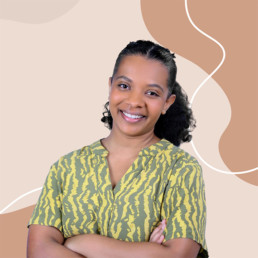
Written by Samira Vance
Diversity, Equity and Inclusion Leader and Consultant. Founder of the Thailand DEI Hub.
As I journey into the next chapter of my life and career, I am finding myself taking stock and feeling gratitude for many things. As I intentionally work to engineer this next phase, I want to share one aspect that I have come to realise is essential to build and find. A community of ‘my people’.
To clarify, by ‘my people’ I don’t necessarily mean BIPOC folx but rather individuals and groups that endow me with a sense of true belonging. The people with whom you truly and fully unmask and allow space for them to do the same. At the start of this year, I attended two incredible conferences (AIELOC and DEIx24) and I was overwhelmed at the power of community. I have since set up the Thailand DEI Hub to provide a similar sense of community and peer support after being inspired by both conferences. Whilst I have found ‘my people’ along my professional journey, it was positively overwhelming to be around so many that could potentially be ‘my people’ all in one place. It is a great thing to find, witness and be amongst the souls that nourish one another.
One of the things that was consistent was the level of vulnerability shown by attendees. At DEIx24, Margaret Park asked us to consider what constitutes a safe place. Is a statement to that effect all that is needed for the feeling of safety to be felt by participants? Many of us have felt the disconnect between being told that it is a safe place when our body and gut tell us otherwise. Yet, in these instances with strangers, online ‘friends/connections’ and acquaintances, the level of vulnerability very clearly indicated the sense of safety felt by many.
A fellow attendee, spoke of wanting to connect people with ‘similar heart stories’. Heart stories. The phrase stuck with me. After some pondering, I have decided that heart stories are those defining, poignant stories of our lives. The ones that make us who we are and the ones that describe our journey through life. Are they what bind us? Do heart stories recognise each other? Indeed hearing my stories and those of my loved ones spoken back to me without my uttering a single word made me feel heard. Seeing the raw emotions through vulnerability that mirrored my own, moved me to connect. I recognised the heart story because it was similar to my own. The snapping of the fingers, the head nods and the ‘Mmms’ told me that the speaker and I were not alone. Those moments, conversations and experiences moved me to make space in my life for these strangers. We could speak truth to our stories where we were understood.
It was a metaphorical embrace signalling understanding, joy, sadness, a spectrum of emotions all at once but most of all, safety in being able to share those emotions with others. It said:
I see you, even as you hide
I hear you, even though you haven’t spoken
I know you, although we’ve never met
I am you, or at least that what my heart thinks
I feel your heart story
At AIELOC, another workshop leader spoke about safe spaces in relation to indigenous practices, specifically that of the Muscogee (Creek) Nation and roles of different members of the tribe. As BIPOC folx, but other minoritised groups too, spread across the globe, are we all yearning for places where we belong?
So many of us work to create equitable and inclusive spaces with the aim of fostering belonging, but what is the cost of existing in spaces not designed for us at this moment? What is the cost of continuing to mask day in, day out? I am very fortunate in that I have been able to find the people in my professional life with whom I can exist as my authentic self but the reality remains that for minoritised groups, this is consistently not the case outside of these relationships and spaces. Whilst we are working on systemic change, it is vital that we find our communities and safe spaces.
As I move back to England (my home), I do so with the recognition that I am a member of both visible and non-visible minority groups. I think about the communities, ‘tribe members’ and safe spaces that I will need in personal and professional settings to both support my mental health and allow me to sustainably carry on with the work that I do.
If you know of any amazing communities in the South East of England or ones based online for black women, mixed-race women, people of south-asian heritage, neurodivergent people/parents, parents of black children, DEI professionals and/or not-so-fit basketballers please do share and connect with me if you’d like! The word underpinning my vision board this year was ‘nourish’ and I can absolutely see the power of communities and people to provide spiritual, mental and sometimes intellectual nourishment and strength.

